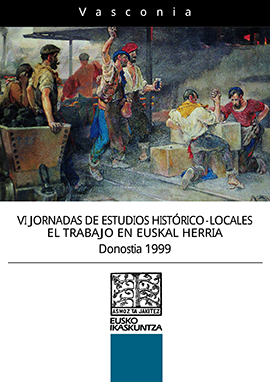El trabajo femenino en la Bizkaia del siglo XIX: análisis del trabajo femenino en la villa de Bermeo en 1860

FERNÁNDEZ FONSECA, María Jesus
; PRADO ANTÚNEZ, Ana Isabel
- Publication year:
- 2000
- Publication place:
- Donostia-San Sebastián
- ISBN:
- 84-8419-965-7
- ISSN:
- 1136-6834
Summary
Between 1826 and 1859 there was in Bermeo a social and labour transition as from the instalation of the fish-tinning and salting industry, that depended mainly on feminine labour. The most evident result was a social organisation based on feminine solidarity, which also originated from the absence of men, who were out at sea. However, as in the rest of Europe, this did not ofset the progressive reduction of women to private spheres, since even in the absence of men, women maintained the household, educated the children and maintained the figure of the pater familias idealised, as the public representative of the family.Sing up and download the publications of Eusko Ikaskuntza
Are you a registered member?. Access




